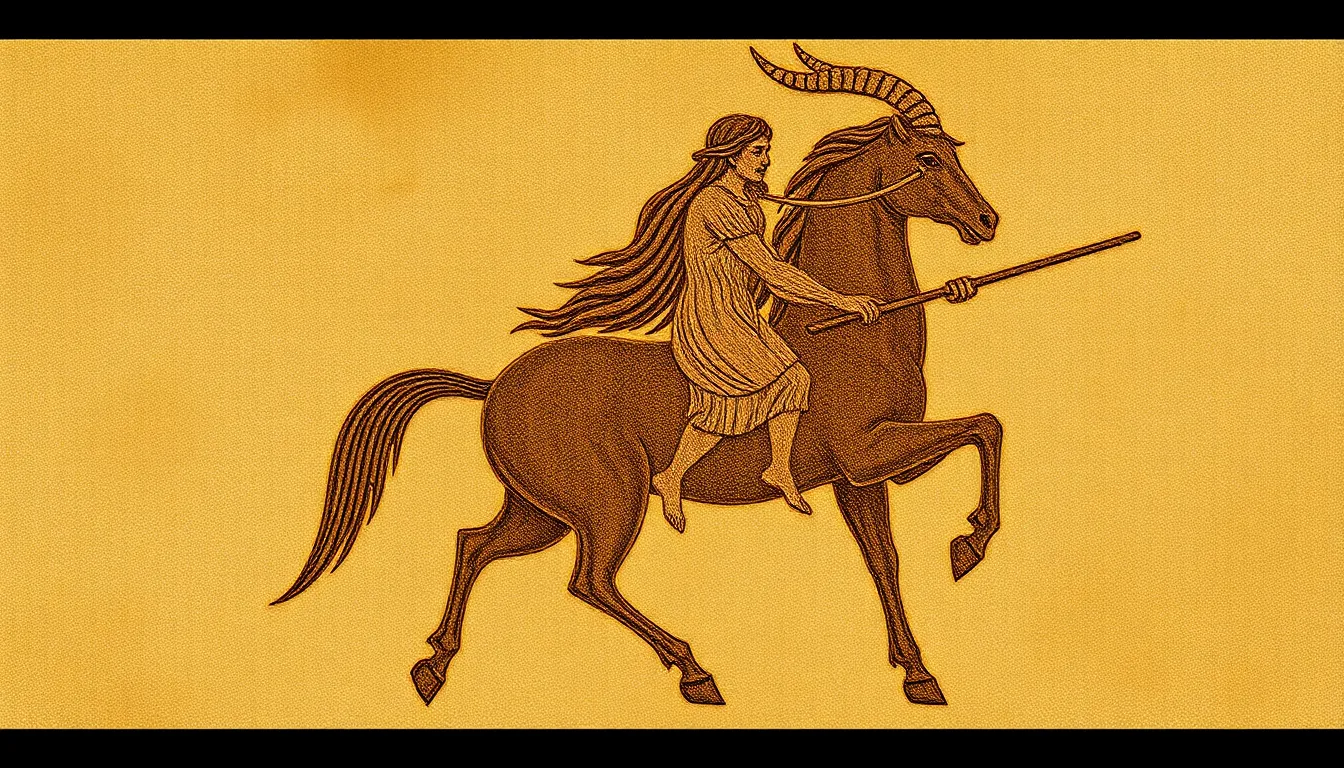The Symbolism of Centaurs in Greek Mythological Narratives
I. Introduction
Centaurs are fascinating creatures from Greek mythology, depicted as half-human and half-horse beings. These mythical beings symbolize a duality, embodying both the civilized and the primal aspects of existence. The purpose of this article is to explore the rich symbolism behind centaurs, understanding their role in ancient narratives and their significance in the human experience.
II. Historical Context of Centaurs
The mythology of centaurs dates back to ancient Greece, where they first appeared in various stories and artistic representations. Their origins can be traced to the mountainous regions of Thessaly, where they were thought to inhabit rugged terrains and symbolize the wildness of nature.
Some notable centaur figures include:
- Chiron: Known for his wisdom and healing abilities, he stands apart from the typical depiction of centaurs.
- Pholus: A lesser-known centaur who played a role in the tales of Heracles.
Over time, the centaur archetype evolved, reflecting changing societal values and beliefs. From chaotic and savage beings, they became symbols of mentorship and wisdom, particularly through figures like Chiron.
III. The Dual Nature of Centaurs
The dual nature of centaurs represents the perpetual struggle between civilization and barbarism. They embody the conflict between intellect and instinct, illustrating the balance between human reasoning and animalistic tendencies.
Centaurs can be seen as:
- A representation of humanity’s inner conflicts
- A symbol of the struggle for self-control and societal order
- An embodiment of the coexistence of reason and chaos
IV. Centaurs as Educators and Mentors
Chiron, the most renowned centaur, serves as a powerful symbol of wisdom and knowledge. Unlike his more savage brethren, he is often depicted as a mentor to many Greek heroes. His role in teaching figures such as Achilles and Asclepius highlights the importance of centaurs in imparting knowledge and skills to future generations.
The significance of their mentorship in Greek narratives includes:
- Chiron’s teachings of medicine and music
- The moral lessons imparted to young heroes
- The representation of the ideal mentor-mentee relationship
V. The Centaur in Conflict
Centaurs are often depicted in battle, reflecting their chaotic nature. Their conflicts in myths, such as the famous battle with the Lapiths at the wedding of Pirithous and Hippodamia, symbolize chaos and disorder. These narratives illustrate how centaurs can embody the darker impulses of humanity.
In these conflicts, centaurs symbolize:
- The savagery that lurks within human nature
- The consequences of unchecked desires and instincts
- The struggle between order and chaos in society
VI. Centaurs in Art and Literature
The visual representations of centaurs in ancient Greek art are abundant. They are often depicted in pottery, sculptures, and murals, showcasing their physical form and the duality they represent.
In classical literature, centaurs are portrayed in works by:
- Homer: In the “Iliad,” centaurs play a role in the background of various stories.
- Ovid: His “Metamorphoses” presents centaurs in tales that highlight their nature and characteristics.
The influence of centaur imagery has continued into later artistic movements, inspiring Renaissance artists and modern creators alike.
VII. Modern Interpretations of Centaurs
In contemporary literature and media, the symbolism of centaurs has experienced a resurgence. They are often used as metaphors for various societal issues, embodying the complexities of human nature in today’s context.
Some modern interpretations include:
- Centaurs as symbols of the struggle between civilization and primal instincts
- Portrayals that reflect modern issues such as identity and belonging
- Representations in popular culture, such as in fantasy literature and films
This ongoing relevance showcases the enduring legacy of centaur symbolism in understanding not only ancient myths but also contemporary cultural narratives.
VIII. Conclusion
Throughout this exploration, we have seen the multifaceted symbolism of centaurs in Greek mythology. From their origins as chaotic beings to their roles as wise mentors, centaurs encapsulate the complexity of human nature. Their enduring legacy continues to resonate, providing insight into the balance between our civilized selves and our primal instincts.
In both ancient and modern contexts, centaurs serve as a powerful reminder of the dualities that define our existence, urging us to reflect on the nature of humanity itself.




